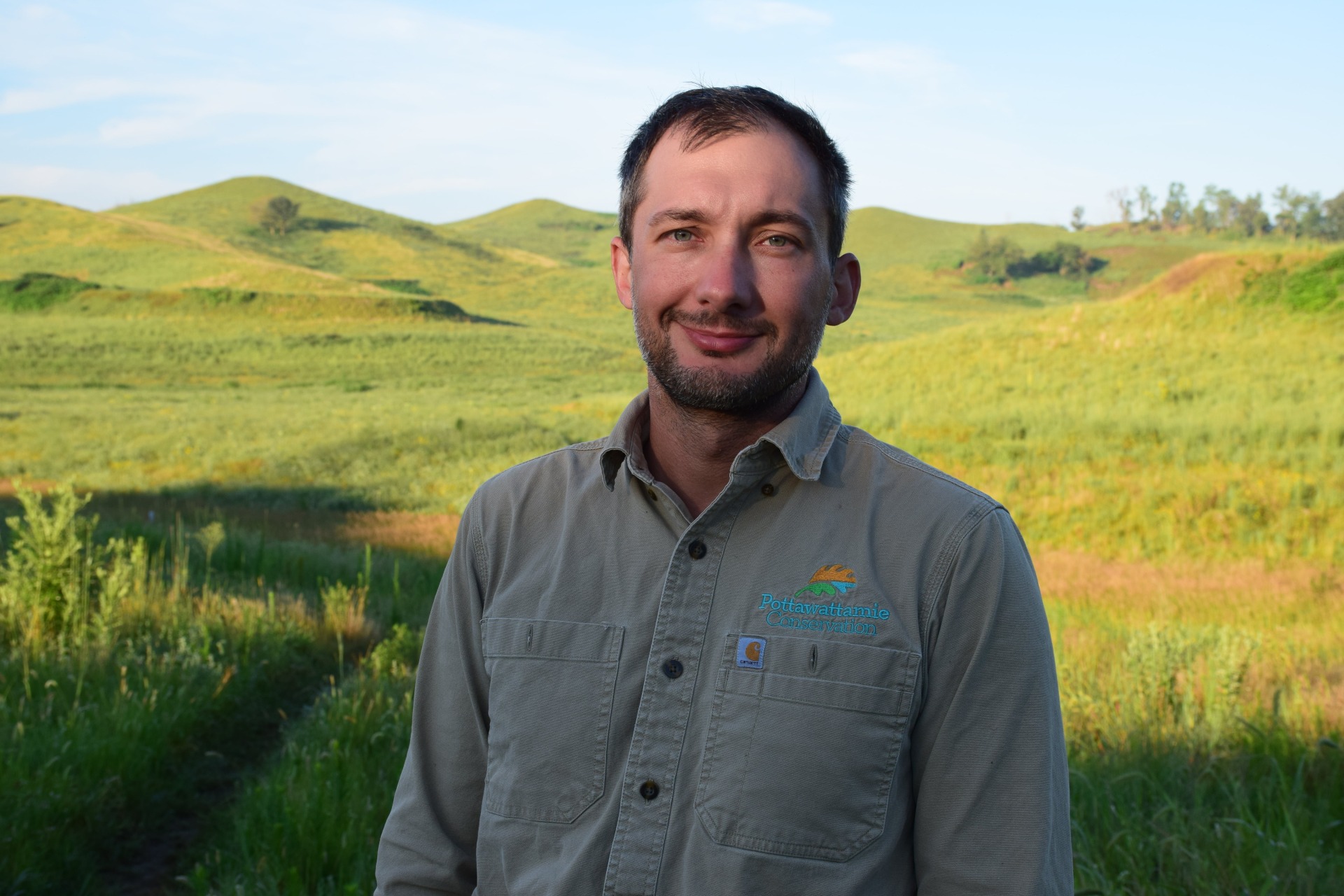Highland cattle from Mud Ridge Ranch will be spending the next couple of months at the park and will be hard at work grazing areas west of the campground to start, then will head south towards Mt. Crescent Ski Area.
Hay, this may be udderly presumptuous, but I imagine you’re wondering why cattle are at Hitchcock. Well, they’re here to work, but don’t tell them that! They think they’ve been brought to a prairie buffet to do whatever be-hooves them. And that’s just how we want these cows and steers; happily chewing their cud, completely unaware of our ulterior moo-tives.
Cattle are probably not the first thing that comes to mind when you think of prairie conservation and management. I’d guess most of us associate them more so with feedlots, billiard table pastures, and dinner.
So, why are they here? At Pottawattamie Conservation our goal is to help heal the land and our relationship with it. The Natural Areas Management team is charged with much of the “land healing,” which can be rather overwhelming. There are so many ailments: invasive species, habitat fragmentation, climate change, etc. It can be difficult to know where to begin, but luckily, we can borrow ideas from another healing profession.
When you go in for a doctor’s appointment the first thing they check is your heartbeat and breathing. Every part of our well-being is built on those vitals. You can’t do anything without oxygen and a pulse. The same is true with our prairies and savannas except the oxygen is used for combustion while the pulse is thumped out by hooves.
Fire and herbivory have been the ecological drivers of this land since the end of the last ice age. The complex biotic communities here having been built upon those fundamentals for thousands of years. To expect grasslands to function without grazing and fire is akin to believing a song can be sung without breathing.
“But, Aric,” I can hear you shouting through the internet, “the grazers on the prairie were buffalo, not cattle!”
You are correct, observant reader. There are important differences between the two. Cattle consume a higher percentage of broadleaf plants than buffalo while also spending more time loafing in the shade and congregating around water sources. It’s not perfect, but like a doctor prescribing medication, we can prescribe the stocking rate, location, timing, and frequency of cattle grazing to make progress towards our land-health goals. We can utilize them to weaken invasive cool-season grasses, to trample and break up aggressive thickets of brush, and to mimic the patchy, migratory nature of buffalo impacts across the land.
The cattle are a facsimile, an artificial heart keeping the prairie alive until that glorious day in the future when the bison hooves return and the heartbeat of Hitchcock thunders through the hills.
P.S. Sorry about the puns. I was really milking it at the end there, but you have to admit they were…well done.
